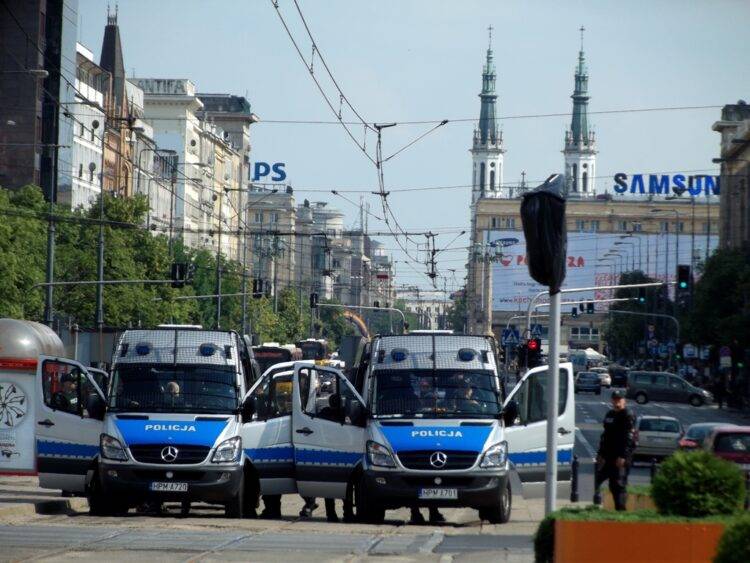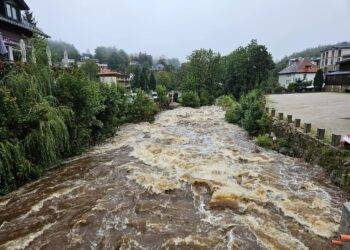A wave of violent crimes is sweeping across Poland, with foreign nationals increasingly implicated in organized criminal activities. From brutal assaults to high-stakes robberies, the alarming trend has sparked public concern and placed law enforcement under pressure to address the issue. Polish government announced deportation for foreign offenders.
Rising Violence and Victims’ Stories
Polish police statistics reveal that last year alone, 18,000 foreign perpetrators were arrested, many linked to the most violent offenses. Among the offenders, Georgian and Ukrainian nationals are frequently cited. Victims recount harrowing experiences that highlight the brazenness of these criminals. Bożena Pieśkiewicz, a Polish citizen, shared her ordeal of being attacked by a Georgian man who attempted to snatch her bag. The confrontation left her severely injured after being pushed down a flight of stairs, requiring multiple surgeries on her arm.
“They don’t fear cameras or witnesses,” said Jan “Majami” Fabiańczyk, a former police officer, describing the audacity of such criminals. “They know they can flee to another country within days.”
Organized Crime Returns to Poland
Experts suggest that Poland is witnessing a resurgence of organized crime reminiscent of the 1990s. Back then, domestic gangs dominated the criminal landscape. Now, foreign groups are taking the reins, operating with a clear hierarchy and strategic coordination.
One particularly brutal incident occurred in Łańcut last year when masked men broke into entrepreneur Witold Bachaj’s home at night. The assailants tortured him and forced him to empty his safe before fleeing with substantial cash.
“There’s a hierarchy,” explained an officer from Warsaw’s Śródmieście precinct. “Some steal low-value items; others handle robberies or break-ins. Above them are leaders who oversee operations.”
Challenges for Law Enforcement
The mobility of these gangs poses significant challenges for Polish authorities. Criminals often escape justice by crossing borders shortly after committing crimes. This transnational element complicates investigations and requires international cooperation to track offenders.
Adding to the complexity is the fact that many gang members appear destitute upon arrest. Despite stealing millions in some cases, they are often found living in cheap hostels or rundown conditions, suggesting that stolen goods or money are handed over to higher-ranking individuals within their networks.
Government Response and Public Concern
The Polish government has ramped up efforts to address this growing problem. Deportation measures targeting foreign offenders have increased significantly, with officials citing national security concerns. However, questions remain about whether these actions are sufficient to curb the rise in violence.
As Poland grapples with this troubling trend, citizens are left wondering whether their streets will ever feel safe again amidst the shadow of organized crime.


















